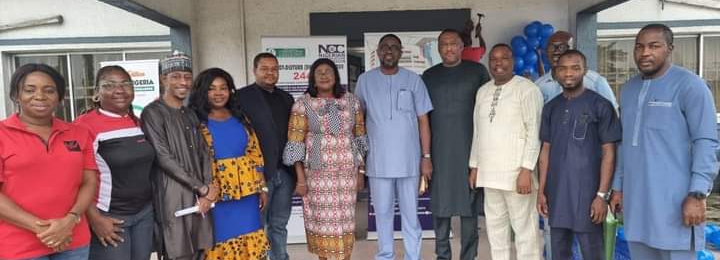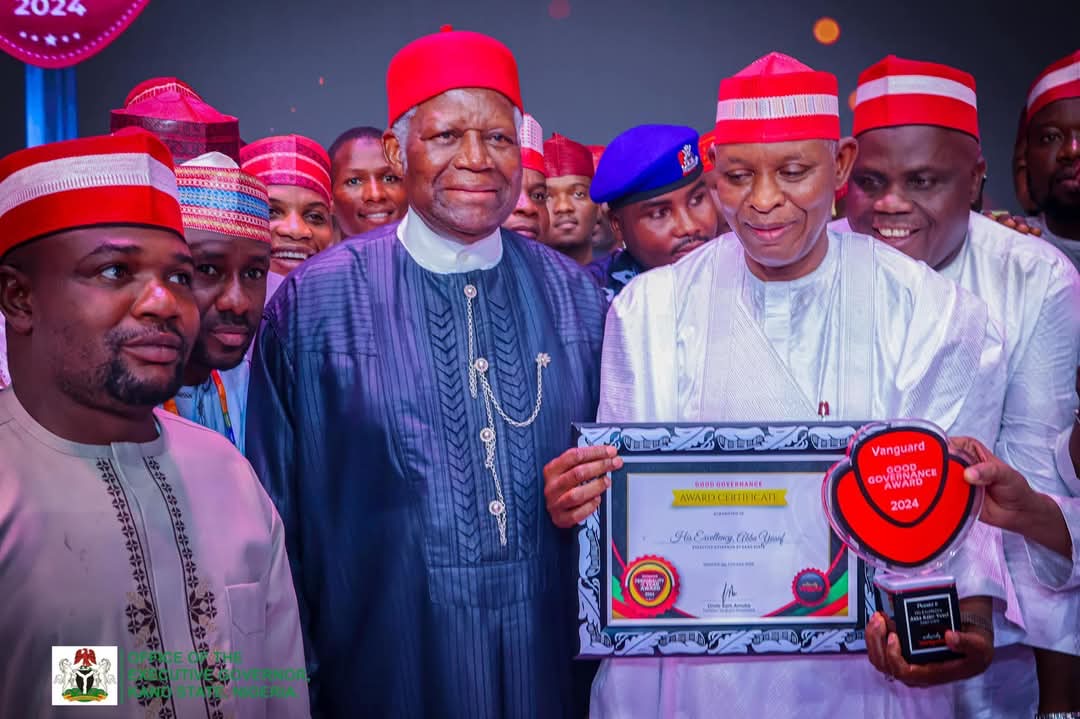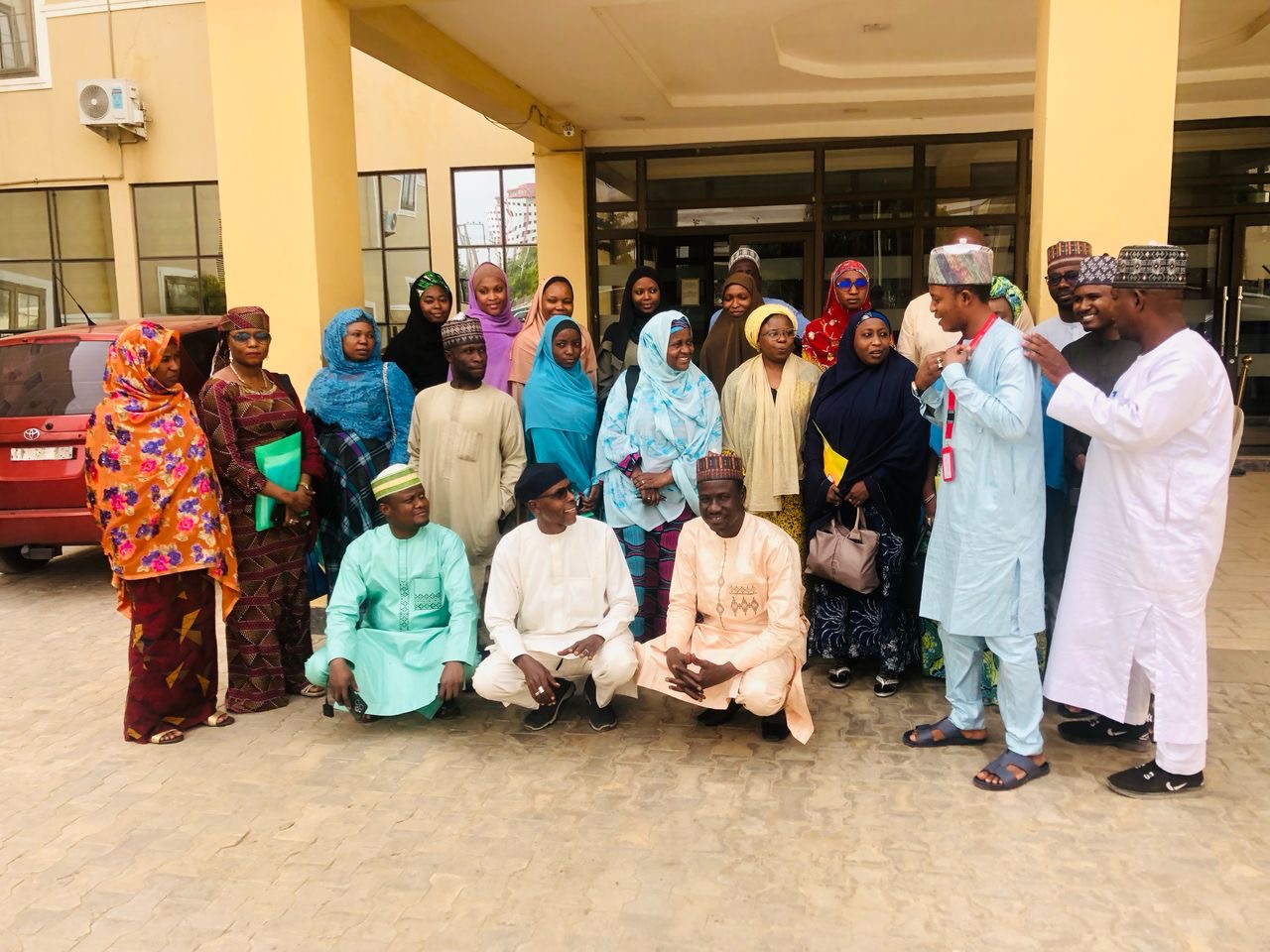News
NCC Demands MNOs, Agents, consumers compliance with SIM replacement guidelines

Nasiru Yusuf
The Nigerian Communications Commission (NCC) has insisted that Mobile Network Operators (MNOs), their licensed agents and telecom subscribers should always comply with the Subscriber Identity Module (SIM) registration, activation and replacement procedures as set out in the Revised National Identity Policy for SIM Registration.
KANO FOCUS reports that the Commission made the request during the 6th Edition of the Telecom Consumer Town Hall on Radio (TCTHR), a radio-based interactive consumer outreach programme of the Commission, broadcast under the auspices of NCC Digital Signature, the Commission’s flagship radio programme.

The programme, which had NCC officials and representatives of MNOs in attendance in the studio, was aired live on Treasure FM 98.5, Garden City, Port Harcourt, Rivers State, over the weekend with the theme: “Understanding SIM Replacement Procedures.”
Speaking during the radio sensitisation programme, the Director, Consumer Affairs Bureau, NCC, Efosa Idehen, said while operators are to ensure strict compliance when registering their customers, the SIM card owners too have the responsibility to be vigilant to ensure that they are properly captured either for new SIM activation or SIM replacement.
“As the telecom regulator in Nigeria, our role is to enforce compliance with the extant SIM activation and replacement procedures in order to avoid problems that may arise in the event of stolen, lost, damaged SIMs or the need to upgrade SIM cards,” he said.
Idehen underscored the significance of SIM registration to personal and national security, and asserted that compliance with the stipulated procedures for SIM replacement will forestall identity theft, fraudulent SIM swap and other deceitful activities that can be carried out with a SIM card.
He informed the listeners that, in accordance with the Revised National Identity Policy for SIM Registration, all SIM replacements shall be undertaken by the service providers or their licensed agents in a controlled environment to eliminate the recurrent complaints of inconclusive SIM replacement procedures.
He said such experiences have resulted in subscribers being defrauded by cyber fraudsters.
Idehen also advised the telecom consumers to be wary of fake SIM registration agents purporting to be working for MNOs with intent to defraud unsuspecting subscribers.
He said one of the antics of such agents is to ask for the one-time password (OTP) forwarded to the consumer for activation of the SIM, especially after the SIM replacement process has been done. He warned telecom consumers to be wary of such scams.
Addressing the requirements for SIM replacement, the Director, Public Affairs, NCC, Dr. Ikechukwu Adinde, said the use of National Identification Number (NIN) is compulsory in addition to all other criteria stated in the SIM Replacement Guidelines.
He declared that the provision is stipulated in the Revised National Identity Policy for SIM registration.
Adinde, who was represented by the Port Harcourt Zonal Controller, Venny Eze-Nwabufoh, explained that using the NIN for SIM replacement is beneficial as it helps in identifying the real identity of a mobile phone user, limiting identity fraud, other network related crimes as well as improving national security.
The Director Public Affairs also stated that the public sensitisation on SIM registration generally is in line with the obligation of the Commission to ensure effective implementation of the Revised National Identity Policy for SIM Registration.
Conclusively, both Directors at the Commission informed the listeners that the NCC is saddled with the responsibility to oversee the implementation and management of the National SIM Registration Database.
The NCC senior executives explained that one of the obligations of the Commission is to ensure the implementation of the policy on revised national identity for SIM registration, and to have oversight of its strategies, standards, guidelines as well as frameworks in order to improve the identity and security management of mobile phone subscribers in Nigeria.

Headlines
Governor Yusuf Champions Education, Resolves Certificate Crisis for Kano Graduates

Kano State Governor Abba Kabir Yusuf has emerged as a beacon of hope for graduates left stranded due to the previous administration’s negligence regarding academic certificates.
His determination to rectify these injustices has culminated in decisive actions to secure the future of Kano’s youth. Ibrahim Adam, the Special Adviser to the Governor on Information, shared these developments with the media.
On December 9, 2024, Governor Yusuf traveled to Cyprus with a mission to obtain the overdue academic certificates for Kano students affected by the prior administration’s failure to meet its educational financial obligations.
During a critical meeting with the management of Near East University, the governor focused on facilitating the release of certificates for students who graduated between 2015 and 2019, particularly in essential fields like Medicine and Nursing.
This was confirmed by Sunusi Bature Dawakin Tofa, the governor’s spokesperson.

In a significant move, Governor Yusuf has settled the outstanding fees of €1.4 million (approximately ₦2.5 billion) owed to the university for 84 medical and2015 to 2019.
This substantial financial commitment honors the dedication and hard work of these graduates, restoring their hopes for a future that had previously been unjustly delayed.
According to Ibrahim Adam, the certificates are set to be handed over to the Kano State Scholarship Board through the Nigerian Ambassador to Turkey, marking a pivotal moment for the affected students.
Governor Yusuf acknowledged the challenges faced by the graduates, declaring, “This situation has been a significant setback for our children, hindering their dreams and aspirations, and it has also affected our state, which is in dire need of their expertise.”
His vision for a prosperous Kano is centered on prioritizing education, ensuring that talented individuals can make valuable contributions to the state’s advancement.
The governor’s proactive measures not only address the systemic issues in the education sector but also inspire renewed hope among Kano’s youth.
By fulfilling his promises, he emphasizes the crucial role of supporting young people in achieving their aspirations, which is vital to the state’s growth.
As this milestone is celebrated, it is evident that Governor Abba Kabir Yusuf’s relentless pursuit of educational reform signals a transformative era for Kano State.
His administration’s unwavering focus on education stands as a vital investment in the futures of individuals and the overall development of the state.
Under his leadership, Kano State is poised to realize its full potential, with eager graduates ready to make impactful contributions to their communities.
Governor Yusuf’s commitment to empowering the youth serves as an enduring reminder that with dedication and decisive action, a brighter future is attainable for all.

Headlines
Governor Yusuf Bags Vanguard’s 2024 Good Governance Award

Mukhtar Yahya Usman
Kano State Governor, Alhaji Abba Kabir Yusuf, has been named Governor of the Year 2024 (Good Governance) by Vanguard Newspaper, in recognition of his transformative achievements in the education and healthcare sectors.
The recognition was announced in a statement issued by the Governor’s spokesperson, Sanusi Bature Dawakin Tofa, on Saturday.
Governor Yusuf received the award at a prestigious event held in Lagos, where eminent personalities from across the country were honoured for excellence in leadership and service.
Speaking at the ceremony, the Chairman of the occasion, Atedo Peterside, emphasized that the selection process was based on merit and verifiable impact, commending the awardees for their outstanding contributions to national development.

Vanguard’s Editor-in-Chief, Eze Anaba, praised Governor Yusuf for setting a high standard in governance through his commitment, innovation, and focus on people-centered policies.
In his remarks, Governor Yusuf expressed gratitude to Vanguard for the recognition, dedicating the award to the people of Kano State.
He reaffirmed his administration’s resolve to continue investing in sectors that directly impact the lives of citizens, especially education, health, and social welfare.
Other recipients of the Good Governance Award included Governors Umar Namadi (Jigawa), Charles Soludo (Anambra), Douye Diri (Bayelsa), Biodun Oyebanji (Ekiti), Sheriff Oborevwori (Delta) and Hope Uzodinma (Imo).
Governor Yusuf was accompanied to the ceremony by members of the State Executive Council, lawmakers, special advisers, local government chairmen, and close political allies.
This latest honour comes just four days after he received the Governor of the Year (Education) award from Leadership Newspaper.
The Governor is also scheduled to receive the Africa Good Governance Award from Heritage Times Magazine later this month in Morocco.

Headlines
Kano Tops Nigeria’s Zero-Dose Immunization List as Boost Project Targets Urgent Action

By Aminu Abdullahi Ibrahim
Kano State has the highest number of zero-dose immunization cases in Nigeria, with 15 local government areas (LGAs) identified as high-burden, according to Save the Children.
This alarming figure has prompted the launch of targeted interventions under the Boost Project, a collaborative initiative by Save the Children and GSK aimed at reducing the number of zero-dose and under-immunized children in the country.
During an engagement meeting held on Thursday with the Kano State Community of Practice (CoP) on Immunization, stakeholders renewed commitments to tackling the issue.
The project is currently being implemented in Kano and Lagos States, with focused interventions in Ungogo and Gezawa LGAs, which are among the most affected areas in Kano.

Speaking at a media and civil society dialogue, Taiwo Folake, Coordinator of the Boost Project, emphasized the critical role of public engagement in reversing the trend.
She called for increased media support to drive awareness and community action on immunization.
Folake explained that the Boost Project works closely with state and local governments, traditional and religious leaders, and caregivers to ensure that children who have never received routine vaccines are reached, while also reintegrating those who have dropped out of immunization schedules.
Dr. Itunu Dave Agbola, Policy and Advocacy Coordinator of the project, said the initiative is also focused on improving domestic resource mobilization for immunization funding, strengthening governance, and developing a Kano-specific immunization policy to enhance planning, funding allocation, and accountability.
She noted that building trust through community leadership is vital for vaccine acceptance.
Also speaking, Salisu Yusuf, Co-Chair of the Kano CoP on Immunization, reiterated the group’s commitment to working with all stakeholders to reduce the number of high-burden LGAs.
He dismissed widespread misconceptions about vaccine safety, assuring that vaccines are safe and scientifically approved.
Yusuf pledged to intensify sensitization efforts through media outreach, house-to-house campaigns, and community meetings.
The meeting marks a renewed drive to improve immunization coverage in Kano State, with a strong emphasis on reaching vulnerable and underserved communities.














